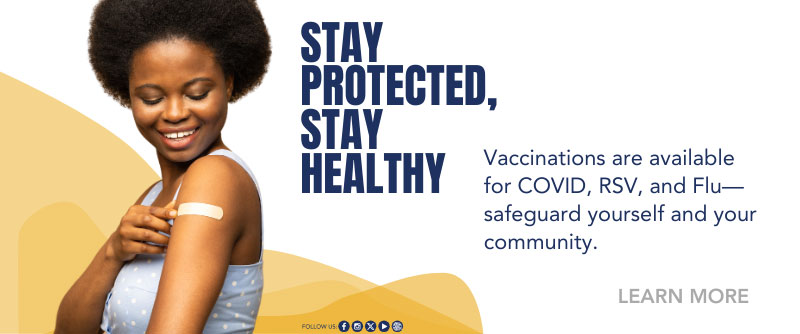Colorectal cancer is cancer of the colon or rectum. Almost 150,000 U.S. men and women a year are estimated to have colorectal cancer, and as many as 55,000 die from it.
Colorectal cancer is one of the most preventable cancers since it typically develops from polyps that can be detected and removed before they become cancerous.
Prevention
- Get regular screening tests
- Exercise regularly, and maintain a healthy weight.
- Eat a diet rich in fruits, vegetables and whole grains.
- Don't smoke, and don't drink alcohol excessively.
Mississippians Speak
Gastroenterologist Samuel Pace, M.D., talks about his personal experience with colon cancer and the importance of screening. View full size
At Risk
- Men and women age 45 and older
- People with a personal or family history of colorectal cancer or benign (not cancerous) colorectal polyps
- People with a personal or family history of inflammatory bowel disease, ulcerative colitis or Crohn's disease
- People with a family history of inherited colorectal cancer
- People who use tobacco
- People who are obese or sedentary
James Rasberry, a Mississippi colon cancer survivor, talks about his cancer discovery and the importance of screening. View full size
Symptoms
Symptoms are your best early warning of possible cancer. Early detection means that treatment has a greater chance of being successful, increasing your odds of a longer and healthier life. Symptoms of colorectal cancer include:
- Rectal bleeding
- Blood in or on the stool (bright red)
- Change in bowel habits
- Stools that are narrower than usual
- General stomach discomfort (bloating, fullness or cramps)
- Diarrhea, constipation or feeling that the bowel does not empty completely
- Frequent gas pains
- Weight loss for no apparent reason
- Constant tiredness
- Vomiting
Verbia Harden, 54, of Jackson knew she was overdue for her first colorectal cancer screening. She acted just in time, getting screened and detecting her cancer before it became inoperable. View full size
Early Detection
Men and women at average risk should begin regular screening at age 45. If you are at greater risk, you may need to begin regular colorectal cancer screening at an earlier age. There are many options for screening:
- Have a Fecal Occult Blood Test (FOBT) annually
- Have a sigmoidoscopy every five years, a colonoscopy or double contrast barium enema every five to 10 years. Have all non-cancerous polyps removed to help prevent colorectal cancer before it starts.
- Have a digital rectal exam every five to 10 years at the time of each screening sigmoidoscopy, colonoscopy or barium enema.
- If you have a personal or family history of colorectal cancer, benign colorectal polyps, inflammatory bowel disease, or breast, ovarian or endometrial cancer, talk to your health care professional about earlier and more frequent screening.


